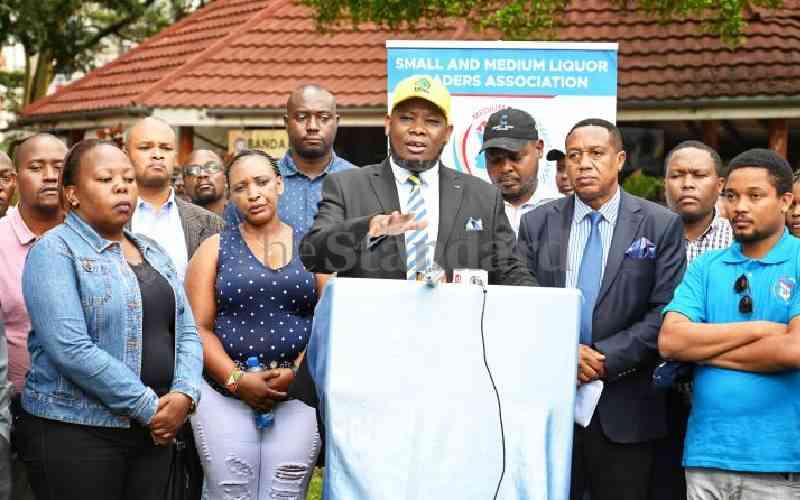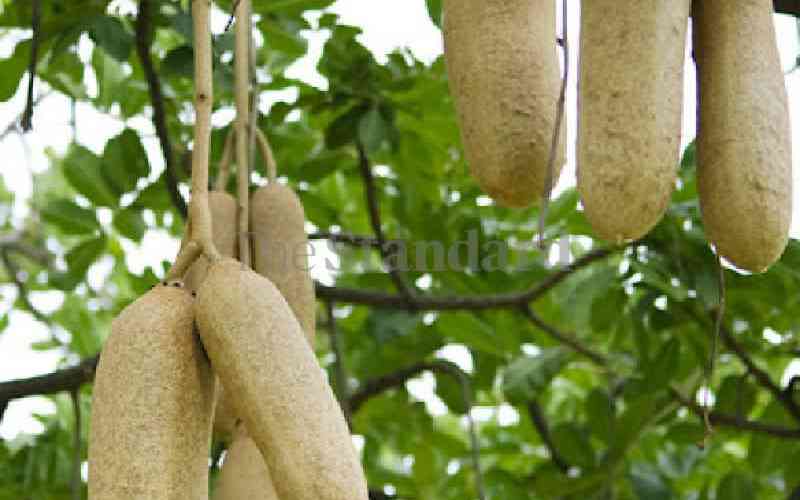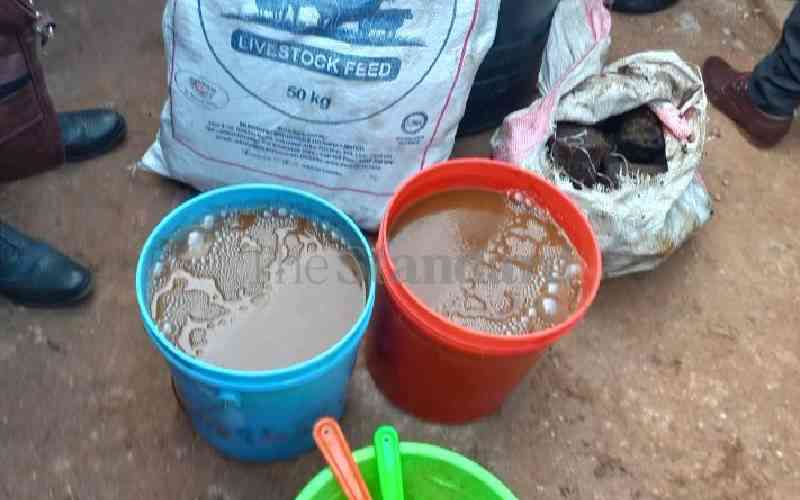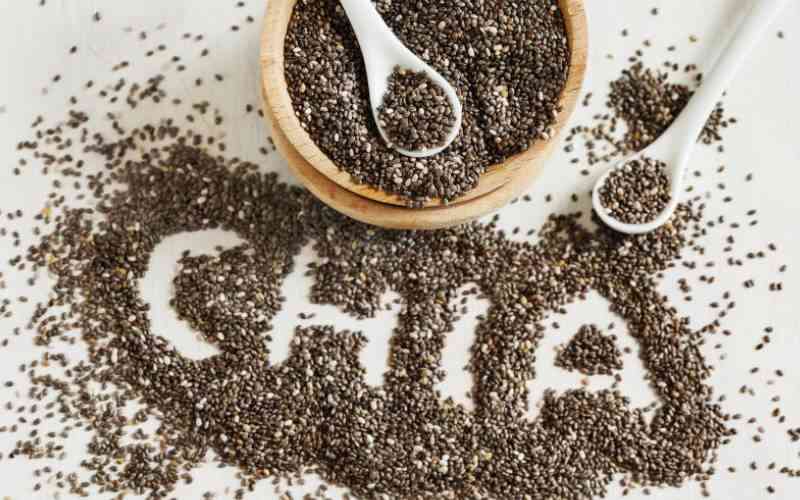There is widespread concern that women in Kisii have now gone into large-scale brewing of illicit liquor commonly known as chang'aa.
According to Kisii County Administration Police Commander James Akoru, chang'aa and busaa, which are the traditional drinks in towns and villages, have ceased to be what they once were; cheap and safe alcoholic beverages.
"Village elders, assistant chiefs and chiefs have assisted in mapping areas regarded as major brewing hotspots in their jurisdiction.
"It's only a matter of community support that can reduce these cases," said Mr Akoru, revealing that the number of women selling the liquor in Kisii was on the increase.
Records at Kisii Central Police Station reveal that at least 50 individuals are arrested every weekend in the area and charged in court with brewing and drinking chang'aa.
The number of containers with chang'aa and busaa lying at the Kisii law courts is a clear indication that the authorities will have to up their game to end this menace.
Every Monday morning, several elderly women and youths are heaped in the dock, possibly after spending the weekend in police cells.
While taking their pleas, many women, majority being widows, plead guilty to selling chang'aa to support their families and educate their children.
Few glasses
It is alleged many women have turned their houses into lodges, this reportedly being the reason why many men rarely make it to their homes after taking few glasses of chang'aa.
The Alcoholic Drinks Act 2013, 33(1) says "any person convicted of being drunk and incapable or drunk and disorderly shall be liable to a fine not exceeding Sh500 or imprisonment for a term not exceeding three months or both."
Most of those brewing chang'aa seem to be riding on this not-so-stiff penalty to sell the killer alcohol.
Mr Akoru also decried the rampant use of motorcycles to ferry the brew.
Kisii Catholic Diocese Father Lawrence Nyaanga, who has been involved in the fight against chang'aa brewing, said poverty had largely contributed to the spread of the vice.
"Male sociability has become a subject of dispute, as have men's increasing visits to drinking joints. Local drinking dens have often become daily meeting places where considerable amounts of chang'aa are consumed," he said.
Stay informed. Subscribe to our newsletter
Nyaanga explained that the illegal retailers also use additives such as formalin, the chemical for preserving bodies in morgues, bhang, ethanol and methylated spirit.
He argues that because many of the brewers do not have the resources to create a product that is strong enough, they need to add dangerous substances so that consumers are satisfied with the level of intoxication.
Florence Kemonde, a widow, said she has been selling the local brew for the past five years.
"I have no other source of income. I have to sell chang'aa and busaa to sustain my family," she said.
Ms Kemonde says she has no alternative but to continue with the outlawed trade.
 The Standard Group Plc is a
multi-media organization with investments in media platforms spanning newspaper
print operations, television, radio broadcasting, digital and online services. The
Standard Group is recognized as a leading multi-media house in Kenya with a key
influence in matters of national and international interest.
The Standard Group Plc is a
multi-media organization with investments in media platforms spanning newspaper
print operations, television, radio broadcasting, digital and online services. The
Standard Group is recognized as a leading multi-media house in Kenya with a key
influence in matters of national and international interest.
 The Standard Group Plc is a
multi-media organization with investments in media platforms spanning newspaper
print operations, television, radio broadcasting, digital and online services. The
Standard Group is recognized as a leading multi-media house in Kenya with a key
influence in matters of national and international interest.
The Standard Group Plc is a
multi-media organization with investments in media platforms spanning newspaper
print operations, television, radio broadcasting, digital and online services. The
Standard Group is recognized as a leading multi-media house in Kenya with a key
influence in matters of national and international interest.










